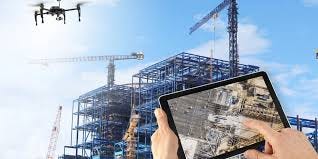Drone Project Management in India: Soaring to New Heights
In recent years, drones have become a game-changer across various sectors in India from agriculture to infrastructure and logistics. As the use of drones expands, effective project management tailored to this technology is essential. Let’s explore how to navigate drone project management in India, focusing on best practices, challenges, and future trends.What is Drone Project Management?
Drone project management involves overseeing all aspects of projects that utilize drone technology. This includes planning, execution, monitoring, and completion while ensuring compliance with regulations specific to India. Successful management requires not just traditional project management skills but also an understanding of drone operations and technology.
Key Components of Drone Project Management
Project PlanningDefine Clear Objectives: Start by outlining what you want to achieve. Whether it’s surveying agricultural land or monitoring construction sites, having specific goals is vital.
Budgeting: Estimate costs, including drone equipment, software, personnel, and any regulatory fees. Keep in mind that unexpected expenses may arise.
2. Regulatory Compliance
Understand Local Regulations: Familiarize yourself with the Directorate General of Civil Aviation (DGCA) guidelines and other relevant laws. Compliance is crucial to avoid legal issues.
Obtain Necessary Permissions: Ensure you have the required permissions to operate drones in specific areas, especially in urban settings or near sensitive locations.
3.Team Coordination
Build a Skilled Team: Assemble a team that includes certified drone pilots, data analysts, and project managers. Each member should know their roles and responsibilities.
Effective Communication: Establish clear communication channels to facilitate collaboration among team members. Regular updates and meetings can help keep everyone aligned.
4. Technology Integration
Choose the Right Drones: Select drones that fit your project’s requirements, whether for aerial photography, surveying, or delivery services.
Utilize Project Management Tools: Implement software tools to track progress, manage resources, and analyze collected data efficiently.
5. Risk Management
Identify Potential Risks: Assess risks such as equipment failure, adverse weather conditions, and regulatory changes.
Develop Mitigation Strategies: Create contingency plans to address potential challenges that may arise during the project lifecycle.
Challenges in Drone Project Management
While the advantages of drones are significant, several challenges can impact project success in India:
Technological Limitations: Consider the limitations of drones, such as battery life and payload capacity. Understanding these factors is crucial during planning.
Data Management: Handling and analyzing vast amounts of data collected by drones can be daunting. Implement effective data management strategies to streamline this process.
Public Perception and Privacy Concerns: Addressing public concerns about privacy and safety is essential for gaining community support and project approval.
Future Trends in Drone Project Management
As drone technology continues to advance, several trends are shaping the future of drone project management in India:
Increased Automation: The integration of AI and machine learning in drones will enhance data analysis and improve operational efficiency.
Broader Applications: Industries such as construction, logistics, and environmental monitoring are increasingly adopting drones, opening new avenues for project management.
Enhanced Training Programs: As the demand for skilled drone operators grows, comprehensive training programs will become essential to ensure a capable workforce.
Conclusion
Effective drone project management is crucial for leveraging the full potential of drone technology in India. By focusing on strategic planning, regulatory compliance, team coordination, and risk management, project managers can successfully navigate the complexities of drone initiatives.
As the industry evolves, staying informed about emerging trends and challenges will be key to achieving project success. Embracing the future of drone technology not only enhances operational capabilities but also paves the way for innovation across various sectors. With the right approach, project managers can truly soar to new heights in the dynamic world of drones.


Comments
Post a Comment